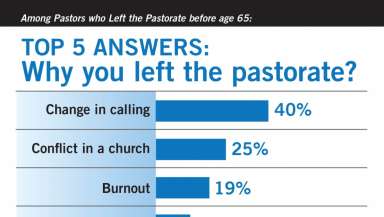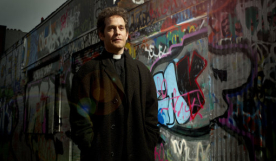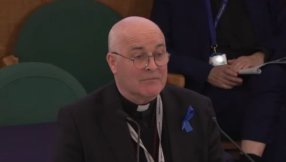Seminary programmes fail to prepare ministers for dealing with the people that they are called to lead and serve, focusing too much on doctrine and theology, according to a new Lifeway Research survey.

The study, which surveyed 734 former senior pastors who left their ministry early, found that despite the people-orientated nature of the role, almost half (48 per cent) said their training failed to prepare them for that aspect of ministry.
"Many seminary programs don't even require courses on the people side – they're focused on theology, biblical languages and preaching, which are important, but almost half of the pastors felt unprepared for dealing with the people they were preparing in seminary to lead and serve," Ed Stetzer, executive director of Lifeway, said.
Although forty per cent of pastors said their leaving the role was due to a change in calling, a significant number cited church conflict (25 per cent), burn out (19 per cent), personal finances (12 per cent) and family issues (12 per cent) as the reason they left.
"These things are interrelated," Stetzer said. "If you're burning out, chances are when conflict arises you're not going to respond well, and that will make the conflict worse."
Key areas of church structure that pastors cited as factors in their desicion to leave ministry included a lack of support in counselling members of their church, a lack of sabbatical and no clear guidelines as to what is expected.
"Almost half of those who left the pastorate said their church wasn't doing any of the kinds of things that would help," Stetzer said.
"Having clear documents, offering a sabbatical rest, and having people help with weighty counselling cases are key things experts tell us ought to be in place."
The study found that 48 per cent of those who left their pastorates said their church had not been accurately described before their arrival. Only 27 per cent of the churches had a list of counsellors for referral of serious cases, and 22 per cent had clear documents laying out the expectations of the pastor. Just 12 per cent had a sabbatical plan for the pastor and 9 per cent of churches had a lay counselling ministry. Only 8 per cent of churches had a support group for the pastor's family.
Almost half of those surveyed, 48 per cent, said their church had none of these support systems in place.
LifeWay Research also surveyed 1,500 senior pastors in March 2015, and found that they were were significantly more positive about their experience.
Although the two studies are not directly comparable, due to differences in how the survey was conducted and who it was conducted on, a comparison is still helpful, Stetzer said.
"We do notice the responses from people who have left the pastorate are worse," he said.
"Either current pastors are painting a rosy picture that doesn't fully describe reality, or those leaving the pastorate are in a less healthy position. Probably there's truth to both of those."
















